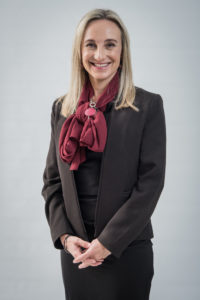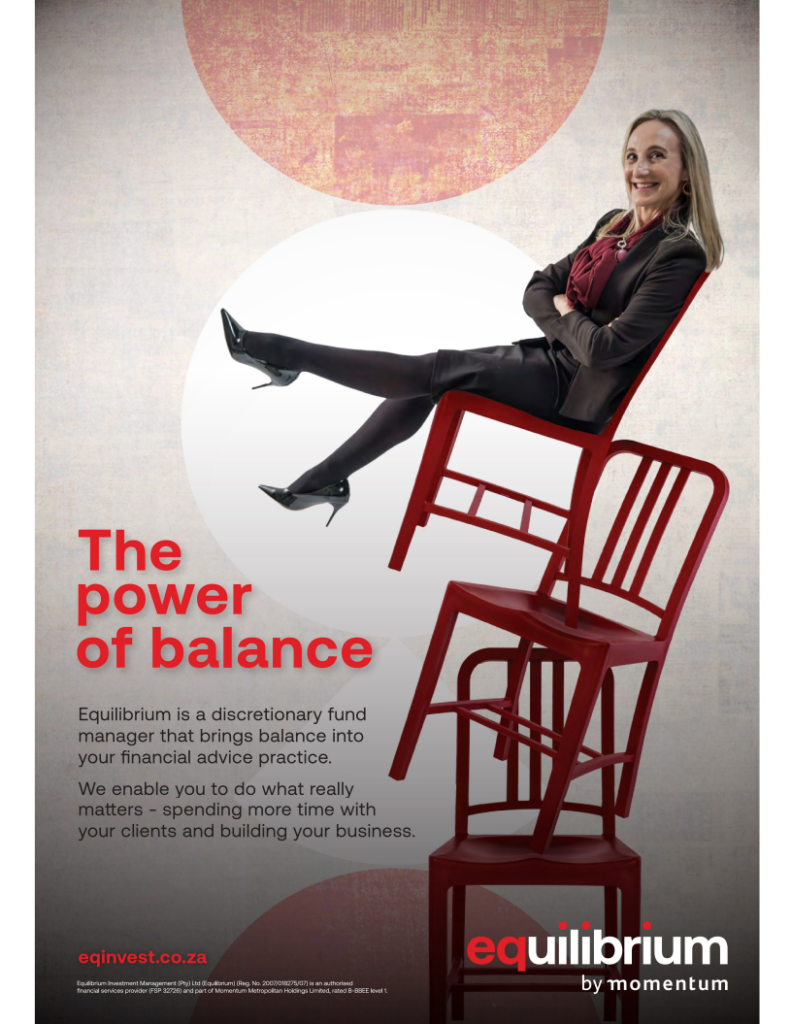By: Florbela Yates, head of Equilibrium

When I first entered the investment industry, I often wondered why investing for high-net-worth clients is any different to investing for any other client. As I become more experienced though, I realised that it is about understanding client needs and segmenting them to make sure that each client – regardless of their wealth – is catered for individually.
As the advice landscape has changed, we have seen an evolution of financial advisers moving from general practitioners, advising on everything from life and healthcare to investments and funeral, to becoming specialists in a particular area. In the investments space, we have experienced a further evolution of advisers from giving general investment advice to establishing full wealth advisory practices. These practices tend to focus on clients with larger investment amounts, which is where the term high-net-worth (HNW) clients come from. These clients tend to be in the top tax bracket, have investments in different domiciles and often seek advisers that can assist with inter-generational financial advice. Advisers in this space need to have a thorough understanding of the legal and tax structures in various countries, understand probate and be able to cater for their clients’ personal and business needs. This requires an understanding of tax planning, trust structures and other legislation and often requires partnerships with experts in other countries.
In addition to managing the client’s needs, these advisers also often land up advising to their primary clients’ children and the relationship tends to extend outside of the traditional advice area. It’s not unusual for wealth advisers to get involved in opening bank accounts, facilitating forex transactions, setting up tax-efficient structures in various domiciles and even managing assets on behalf of minor dependants once their client has passed away.
And the investment universe is wider than the traditional asset classes such as equities, fixed income, listed property and cash. It often extends to direct property, private equity, crypto currency and luxury goods such as wine, art, stamps, jewellery and luxury cars. This need for expertise in so many areas is the primary reason that wealth practices often employ experts in various areas allowing them to build multi-disciplinary teams.
In South Africa, we have seen an increase in emigration from the high-net-worth clients over the past five years, yet this has coincided with an increase in the number of wealth practices (or wealth networks) that cater to the high-net-worth clientele. This seems counter-intuitive. But further analysis shows that although this segment has shrunk, there has also been an increase in clients moving from the middle class to the high-net-worth segment. And although some are entrepreneurs who have built their wealth in South Africa, there is a growing number of foreign investors who are now included in this segment. I was recently speaking to the CEO of a property company in the Western Cape and she confirmed how the demand for property from foreigners has escalated. They aren’t only looking for property in the Cape Town City Bowl but all over South Africa. Property companies are battling to find sufficient supply, which can include wine or game farms and even industrial property. Foreigners are choosing South Africa as a destination that they want to settle in. And whether they are here permanently, on a work contract or merely swallows during our summer, their capital follows them, and they are becoming part of the growing high-net-worth pool that we are now having to find investment products for.
The wealth management space has grown significantly in the last decade. A good HNW adviser will have the specialisation and skill sets needed to provide comprehensive solutions for managing, preserving and growing wealth not just for this generation but for future generations as well. Using the right partners when it comes to investing gives you the peace of mind in knowing that your clients’ investment objectives are secure so that you can focus on the things that really matter.
Visit eqinvest.co.za to find out how a DFM can help your advice practice.


